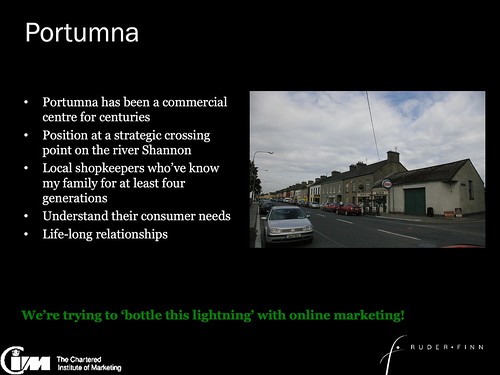4 minutes estimated reading time
Intuit Mailchimp are brave in terms of the the approach that they take to their marketing and Clustomers is a prime example of this.
Clustomers is a great campaign that builds on the frustrations that marketers face about segmentation and personalisation of communications. It is fantastically single-minded in its execution, which is what you want in an effective advert. I could have been seen how the rats nest of people could have come across as creepy rather than surreal and the art direction gets the tone right wonderfully.
But I think that the communications around clustomers to be more nuanced.
The Clustomers campaign
The Clustomers advert itself is the first point of evidence I would use is a brand building, distinctly non-personal campaign. The fact that I am writing about it, speaks a lot to its ‘talkability’. It has carved out its own small part of culture.
It looks to place MailChimp as the marketing technology vendor for start-ups and small to medium sized businesses. But like many political campaigns, it promises a simple solution to a challenge that might be more complex.
But this isn’t a campaign that will be only seen by the small business owner, or someone with a slide hustle. The message of personalisation might be received, without the nuanced understanding of marketing that MailChimp has demonstrated in the way that they’ve built the campaign. CFOs don’t have a sufficient understanding of marketing to understand this. For many of them it’s just a set of line items on the wrong side of a spreadsheet.
C-suite misconceptions
As I’ve said, I think that the message Clustomers gives is problematic in a wider context. A good deal of that problem is down to business founders and the C-suite having fundamental misconceptions on what marketing communications purpose is and how it does it.
Advertising isn’t fluffy or all about colouring in. It’s a legitimate and important tool for driving business success. The trouble is that CEOs, CFOs, founders and investors sometimes forget that fact. They’re sceptical about advertising at the best of times and often pull the plug when the economy feels wobbly.
Dr Grace Kite, Marketing Week
Clustomers fuels a perception that personalisation is the key to marketing and by implication performance marketing is the only marketing required. The reality is more complex. The Ehrensberg Bass Institute’s Byron Sharp talks of ‘smart mass marketing’ and brand building as being the key for the majority of marketing activity in conjunction with personalised communication. The Institute of Practioners in Advertising has been doing sterling work trying to educate the C-suite, but technology specialists like Adobe, Google and Meta have been negating a lot of that good work done.
Portumna
Prior to COVID-19, back when I presented a lot more in public I used to present the following slide and when I talked to it I probably reflected some of what MailChimp customers would look for, and was behind Clustomers.
Portumna is the closest market town to where my family originated. My cousin still works part-time on the family farm. Portumna has been a commercial centre for centuries because of geography. It sits at a strategic crossing of the River Shannon. The Shannon divides the east of Ireland from the west of Ireland and has been a shipping way from centuries past to the present day.
A number of the shops including grocery stores, hardware and farm supplies, the sub-post office and the local pharmacy are family businesses. At least four generations of shopkeepers in the town knew my family and did business with them over the centuries.
There were life-long relationships formed. When I go home, I am loyal to the grocery store and pharmacy that my Uncle and grandparents used. The shopkeepers understood the needs of relatives who lived in the area and the kind of farm that they ran. The kind of online marketing that clustomers seeks to bring forward, is the kind of relationships that were in place in Portumna for centuries.
But those relationships were not just about personalised communications. There was a wider cultural context and even ‘brand’.
- The fact that the family in question had built up trust in the community.
- That they were known to be ‘respectable’.
- That they had delivered for my family and people that they new in the past.
- These brands were local oligarchs. They had one or two competitors at best.
So the customer mental models around farm supplies, the butcher or the grocer were very strong and constantly reinforced. And this is the kind of stuff that advertising as part of non-personal communications is best at doing.
